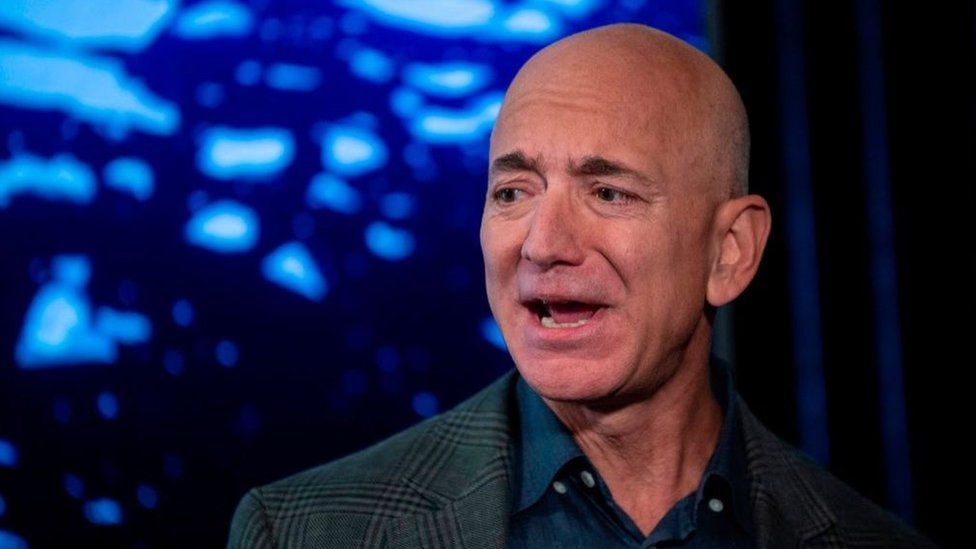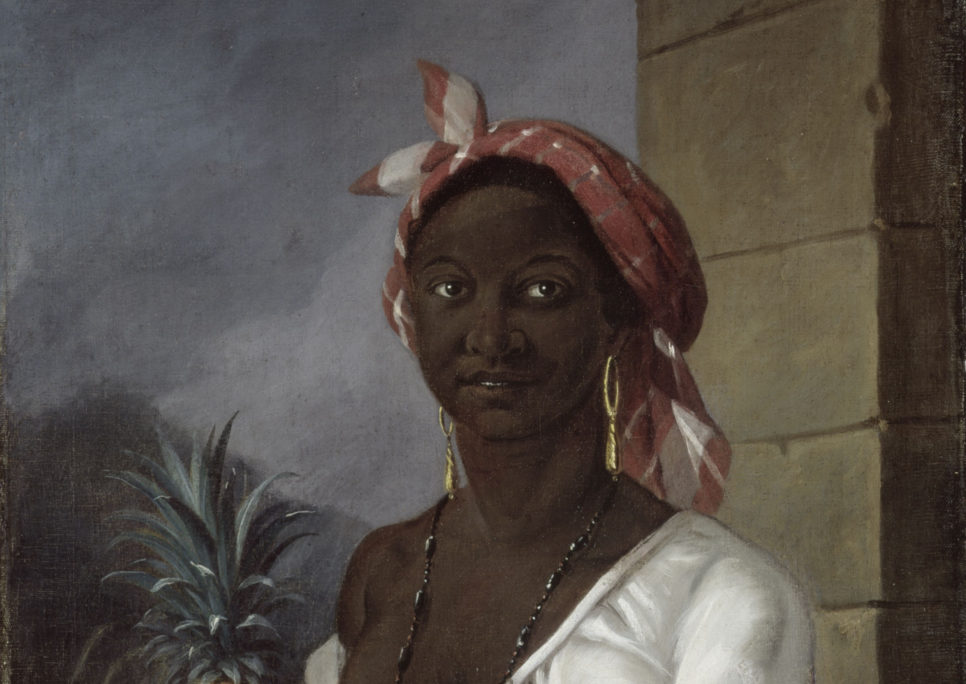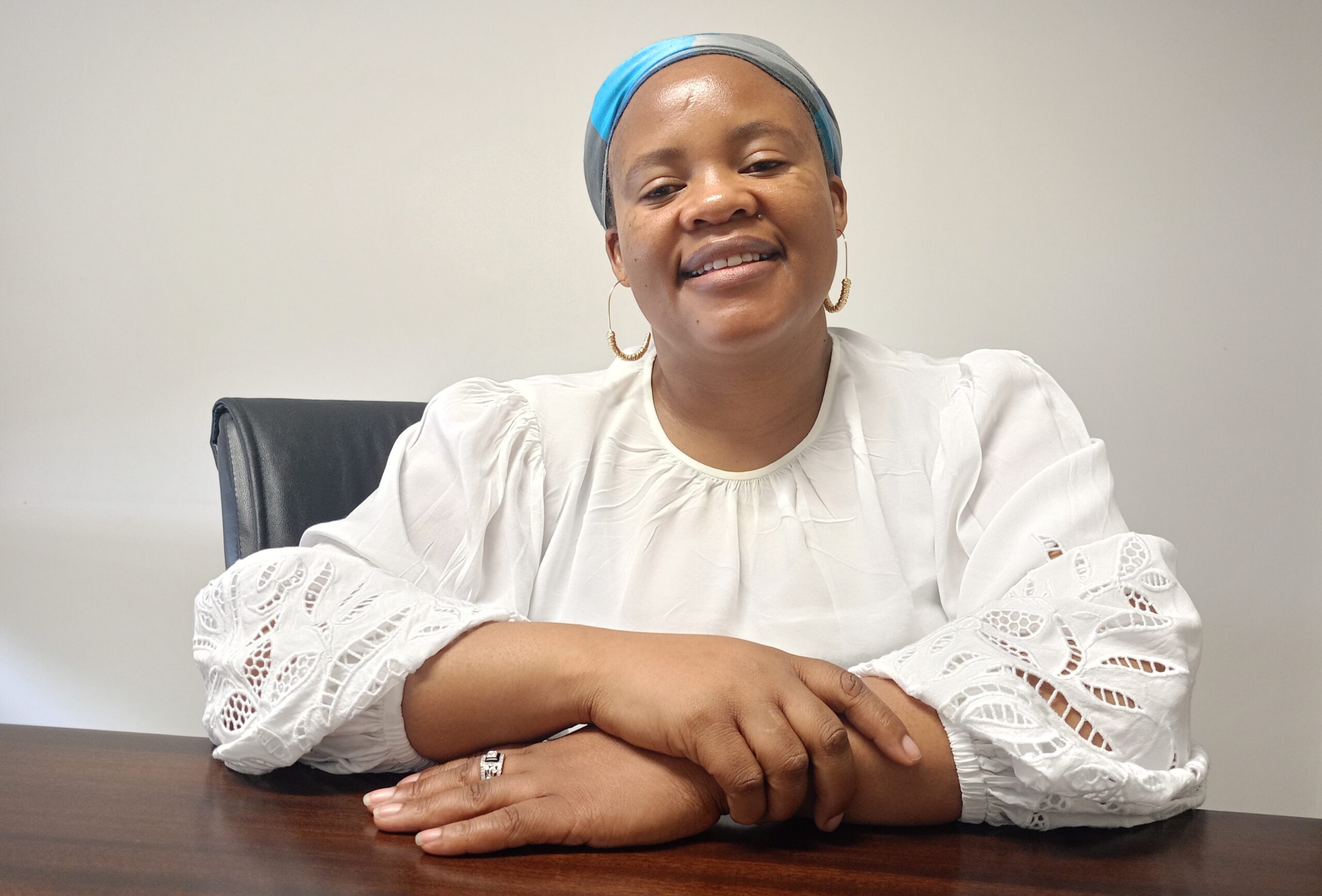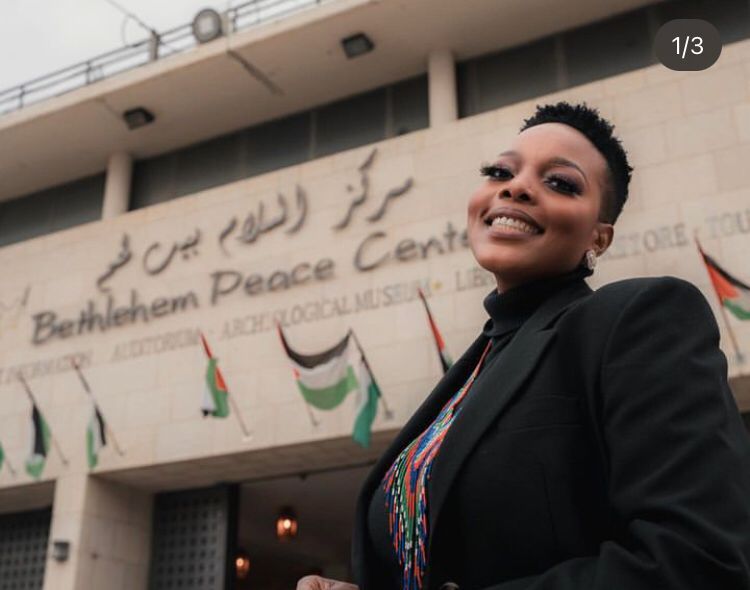
Zoikode-in-Jerusalem.
writes Suraya Dadoo
“Inshallah” (God Willing). That was South African musician Nomcebo Zikode’s response two years ago when I asked her if she is keen to visit Jerusalem. At the time, Jerusalema – Zikode’s global smash hit with Master KG (real name Kgaogelo Moagi) – and the accompanying viral #JerusalemaDanceChallenge had reached the occupied city.
The song’s infectious beat was a global bright spot during the dark days of Covid-19 lockdowns in 2020 and its dance routine conquered the world, producing thousands of videos on social media. But it was one particular clip filmed in East Jerusalem that really grabbed Zikode’s attention – and heart.

The Palestinian version of the #JerusalemaDanceChallenge was performed by the Afro-Palestinian community in East Jerusalem, whose roots go back to Nigeria, Chad, Senegal and Sudan.
It wasn’t only Jerusalema’s catchy beat that moved them – but Zikode’s deeply spiritual lyrics in isiZulu – one of South Africa’s official languages. Although Jerusalema has largely been received as a pop hit, it is essentially a gospel song.
Its lyrics are an appeal to God asking for protection, guidance and to be taken back home to a place of safety. Throughout her career, Zikode has upended gospel and spiritual music by successfully fusing gospel-inspired vocals with Afro-pop and house beats.
Jerusalema’s hook “Jerusalema ikhaya lami” (Jerusalem is my home) became something of a global anthem, but it was deeply personal for Palestinians and described their longing for peace and to be able to return to their homes and families.
“It was really special seeing Jerusalema reach Jerusalem. It’s a place close to my heart,” says Zikode.
She says that it was one of the first times that people were focusing on her lyrics during the Jerusalema frenzy in 2020. “It was amazing. I am always so grateful that my music connects with people on a deeper level. It reminded me of the power that music can have.”
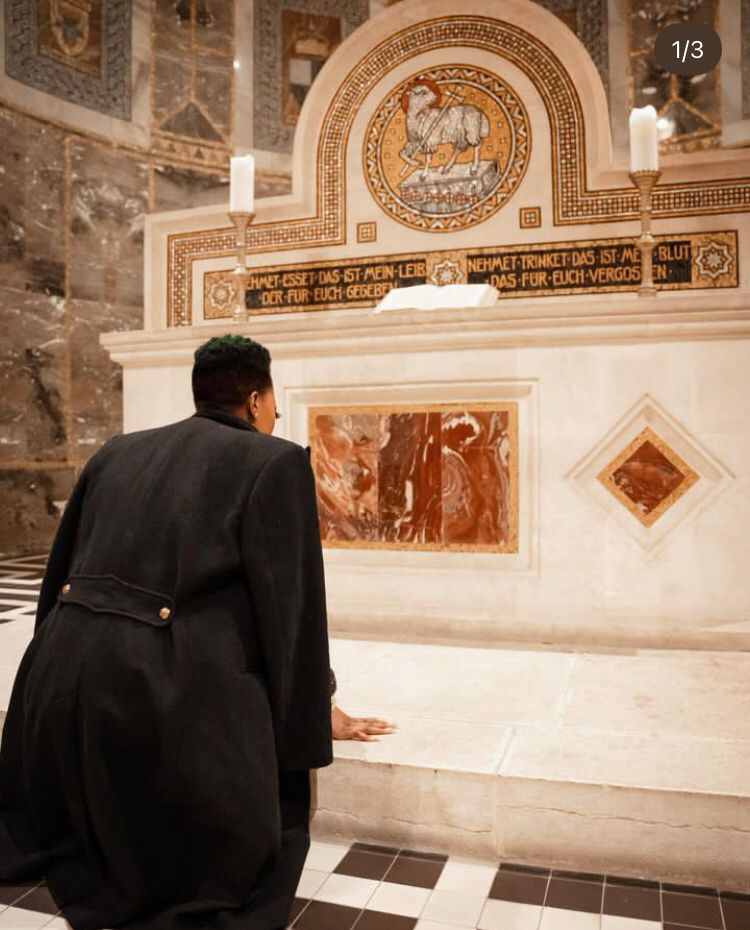
The song’s impact on social cohesion and unity was also recognised by the South African government. In July 2020, Zikode and Master KG were appointed by the South African Ministry of Arts and Culture to serve as cultural ambassadors to the world.
“We are happy you have put our country on the global map. You have used both song and dance to unite the whole world. We thank you for that,” South African Arts and Culture Minister, Nathi Mthethwa said at the time.
It’s a role that’s excited Zikode, allowing her to explore social issues and serve the communities in her hometown of Hammarsdale in the KwaZulu Natal province of South Africa. In 2021, Zikode launched the Nomcebo Zikode Foundation with initial funding from a Swiss data management platform.
The Foundation’s inaugural projects focused on aiding disadvantaged children, elderly nursing homes, and supporting caregivers in Hammarsdale and surrounding areas.
With the easing of Covid travel restrictions, Zikode’s been able to take this humanitarian role outside South Africa. In Africa especially, she has tried to make a difference to communities that she has visited while touring.
In December, however, Zikode’s lyrics came to life when she found herself in Jerusalem.
“I wrote Jerusalema, not knowing that one day I’ll actually be here. This is a dream come true. God has answered my prayers,” said an ecstatic Zikode in early December as she touched down in the Occupied Palestinian Territories (OPT) for a series of events and outreach programmes in the West Bank and Jerusalem.

For Zikode, however, this was no ordinary tour. Faith and spirituality is central in her music and personal life and she says that finding herself in Jerusalem – a city sacred to Christians; the place of Jesus’s crucifixion and resurrection, the birthplace of Christianity itself, and the site of its first churches – has been overwhelming, emotional, but also spiritually rejuvenating.
Walking the Via Dolorosa or the “Way of the Cross” – the winding path taken by Jesus Christ to his crucifixion that is marked by fourteen stations of suffering – was particularly significant for the innovative gospel hitmaker as she reflected on her sometimes rocky road to music superstardom that’s been peppered with the highs of a Grammy Award nomination and the lows of legal battles around royalties and copyright claims.
In Bethlehem, Zikode was excited to walk the streets that Mary and Joseph had trod in search of accommodation ahead of the birth of Jesus Christ. On December 3, Zikode also performed at the official Bethlehem Christmas tree lighting ceremony in Manger Square – the birthplace of Jesus Christmas.
This is the first official Christmas tree lit around the world. Having travelled from Nazareth to Bethlehem and on to Jerusalem, Zikode’s hosts informed her that this was also the route travelled by Jesus. It is a Christmas that Zikode says she will never forget.
While Zikode absorbed the spiritual and religious significance of the Holy Land, her interactions with Palestinian musicians allowed her to appreciate the socio-political realities of the area.
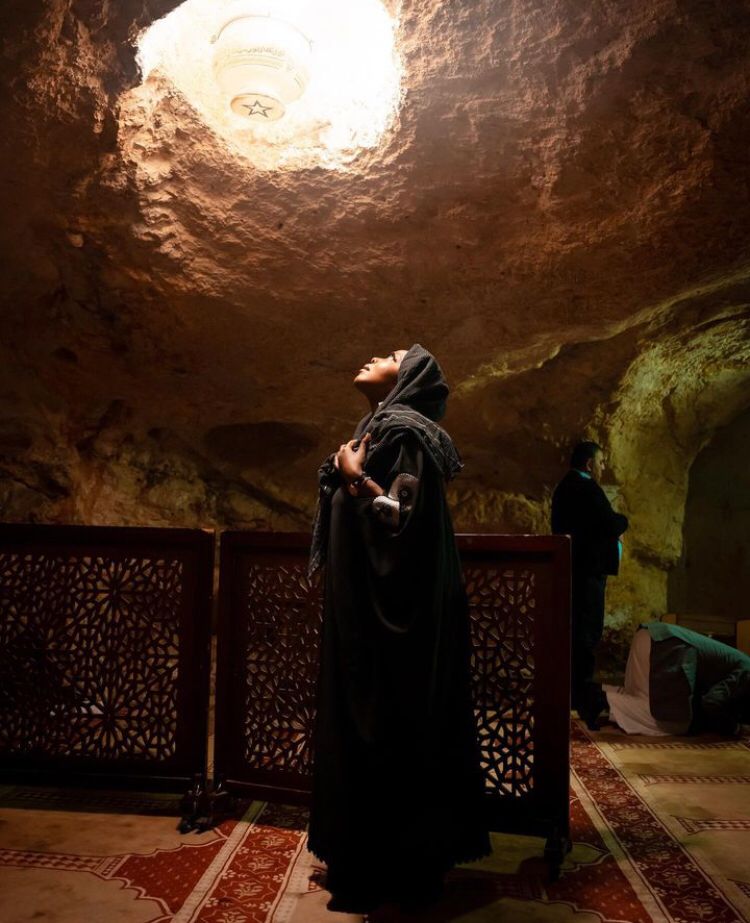
As she navigated a maze of military checkpoints and criss-crossed occupied Palestine, the themes of displacement, refugees and a powerful longing for home loomed large in many of her engagements in the OPT.
In the village of Iqrit in the northern Galilee, Zikode met Walaa Sbait and Ramzy Suleiman of the Palestinian band 47SOUL which combines traditional Palestinian music with electronic beats, hip-hop, reggae and dub.
Following the creation of Israel in 1948, Sbait’s grandparents and parents were ordered by the Israeli army to leave Iqrit because the area was declared a closed military zone. Most of the almost 500 inhabitants were transferred to a nearby village, taking only basic necessities, in the belief they would be returning two weeks later.
Three years later, Israeli soldiers demolished the village, leaving only the church and the cemetery intact. The village land was taken for Israeli state use; the villagers and their descendants forbidden from returning.
Sbait grew up listening to his parents reminisce about their lost land. “We all live in different villages and towns now, but Iqrit is the place we call home.” To add a Jerusalema spin on Sbait’s sentiments: Iqrit ikhaya lami.
“Jerusalema had a big impact on me,” says Sbait, who also performed his own version of the #JerusalemaDanceChallenge which further popularised the song among Palestinians.
For almost a decade, Sbait has been part of a movement by young Palestinians – grandchildren of Iqrit’s original residents – to reclaim the village. The group started a vegetable garden amongst the rubble and traditional Palestinian food is cooked and eaten in a makeshift structure next to the Church of Our Lady. Mass is held at the church for about 200 people on the first Saturday of every month.
Sbait uses music and dance as tools for community building and often invites other musicians to perform in Iqrit to shine a light on their battle to return home. Zikode is aware of the significance of her presence in Iqrit during the Christmas period as the village was demolished on Christmas Eve in 1951.
Both Sbait and Zikode appreciate music’s potential for greater purpose, and they are keen to work together on future projects. Zikode is also hoping to collaborate with the Afro-Palestinian community she met in Jerusalem that had performed the #JerusalemaDanceChallenge video that she watched two years ago.
Zikode wasn’t in a good emotional space when she came up with the lyrics for Jerusalema.
“Master KG played the beat a couple of times, and the words that came to me were ‘Jerusalema, ikhaya lami [Jerusalem is my home]’,” says the 34-year-old singer. “I wanted God to take me to my own Jerusalem – a place where I could find the peace and contentment that I desperately needed.”
But at events in Jerusalem, Bethlehem, Ramallah, and across occupied Palestine, Zikode says she heard young Palestinians express a similar desire to live their everyday lives in peace – without soldiers or military checkpoints. Many of those that Zikode interacted with were either refugees, or descendants of refugees, who – like Walaa Sbait – expressed a strong desire to return to homes from which they were displaced.
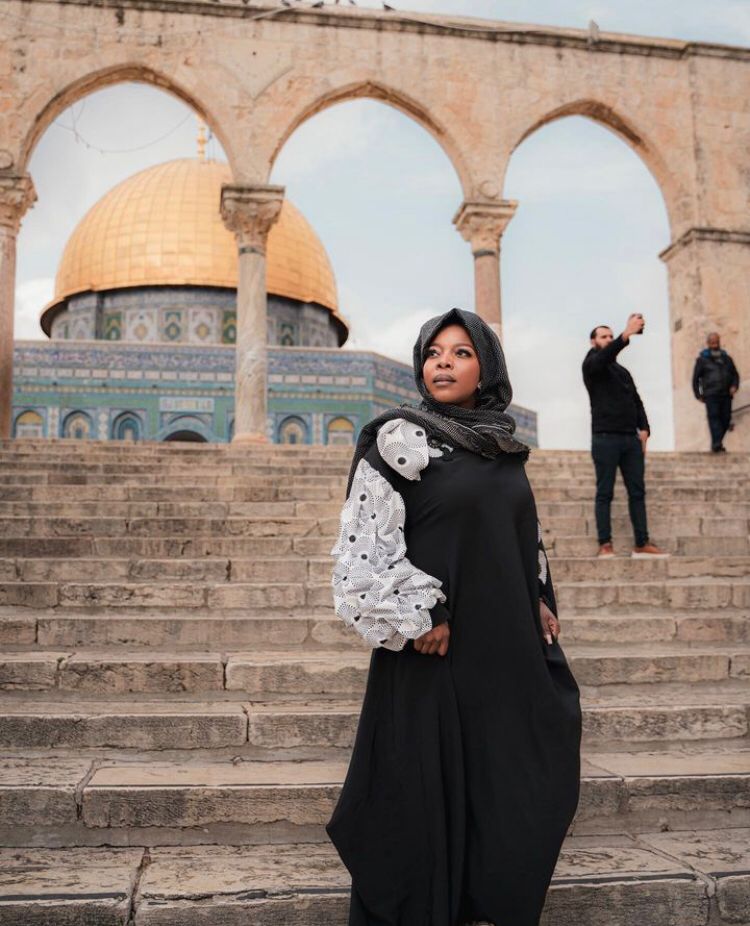
During a visit to Augusta Victoria Hospital in Jerusalem, Zikode listened in astonishment as children from the West Bank and Gaza Strip explained that they were there alone because their parents had been denied travel permits by the Israeli authorities to accompany them for treatment.
After having visited Jerusalem and other parts of occupied Palestine, Zikode says she now understands why the lyrics resonated so strongly with Palestinians. “It’s actually helped me appreciate my own lyrics even more” Zikode admits.
Suraya Dadoo is a writer based in Johannesburg, South Africa. Find her on Twitter: @Suraya_Dad






